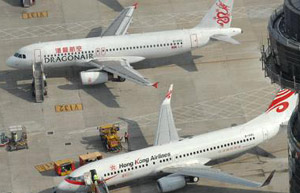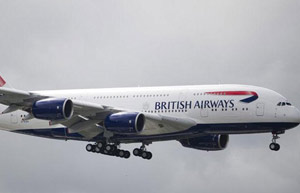Some local carriers based in remote regions are also getting involved in commuter flights.
Yunnan Ruifeng General Aviation Co Ltd took delivery of its first Mustang aircraft from US-based Cessna Aircraft Co in July. It will get another Mustang by the end of this year, and it aims to establish a leading commuter carrier with eight to 10 planes within three years, said Chairman Chen Jiang.
In some parts of Yunnan, remote locations and difficult terrain mean that ground transportation is not a viable alternative to air service, Chen said. Passengers will only need to book seats three days before departure. Fares will be about 20 percent higher than first-class tickets on scheduled airlines.
Jinggong General Aviation Co Ltd, based in Zhejiang province, will start a commuter line with the GA8 Airvan aircraft, which is made by GippsAero Pty Ltd of Australia.
As a private entity with limited resources, it is difficult for Jinggong General Aviation to operate on major routes. But commuter services are a "blue sky" for private capital, the company said.
The commuter aviation market is promising, with changes in national policies that will benefit the industry, experts said. Commuter aviation is "an effective complement to regular air services", said Ji Qi, a committee member of the China Air Transport Association.
Commuter aviation serves the last leg from airports to passengers' destinations and is the most economically efficient mode of transportation in remote areas, he said.
Meanwhile, the opening of low-altitude airspace is progressing steadily, making commuter flights a reality.
The National Airspace Management Commission will soon formulate plans for low-altitude airspace reform, Col. Yang Yujun, spokesman for the Ministry of Defense, said earlier this month.
However, carriers face some challenges. It is not clear if remote, less-developed regions of the nation will provide enough passengers for commuter airlines, said Ji Qi.
Limited resources, high costs and the difficulty of applying for routes might all constrain the sector's development.
Staffing could be a problem as well, with shortages of both crew and managers, industry sources said.
There are about 380 domestic airports suitable for commuter flights, according to the Civil Aviation Administration of China, but that is likely to be far fewer than needed.
Sparkle Roll's Ji Xingzhuo said the carrier plans to cooperate with local governments to develop specialized general aviation airports. "We hope China's 'air taxis' will fly high," he said.
 |
 |
| Cheung Kong in aviation lift-off | Aviation industry sees potential gold in 'gutter oil' |
